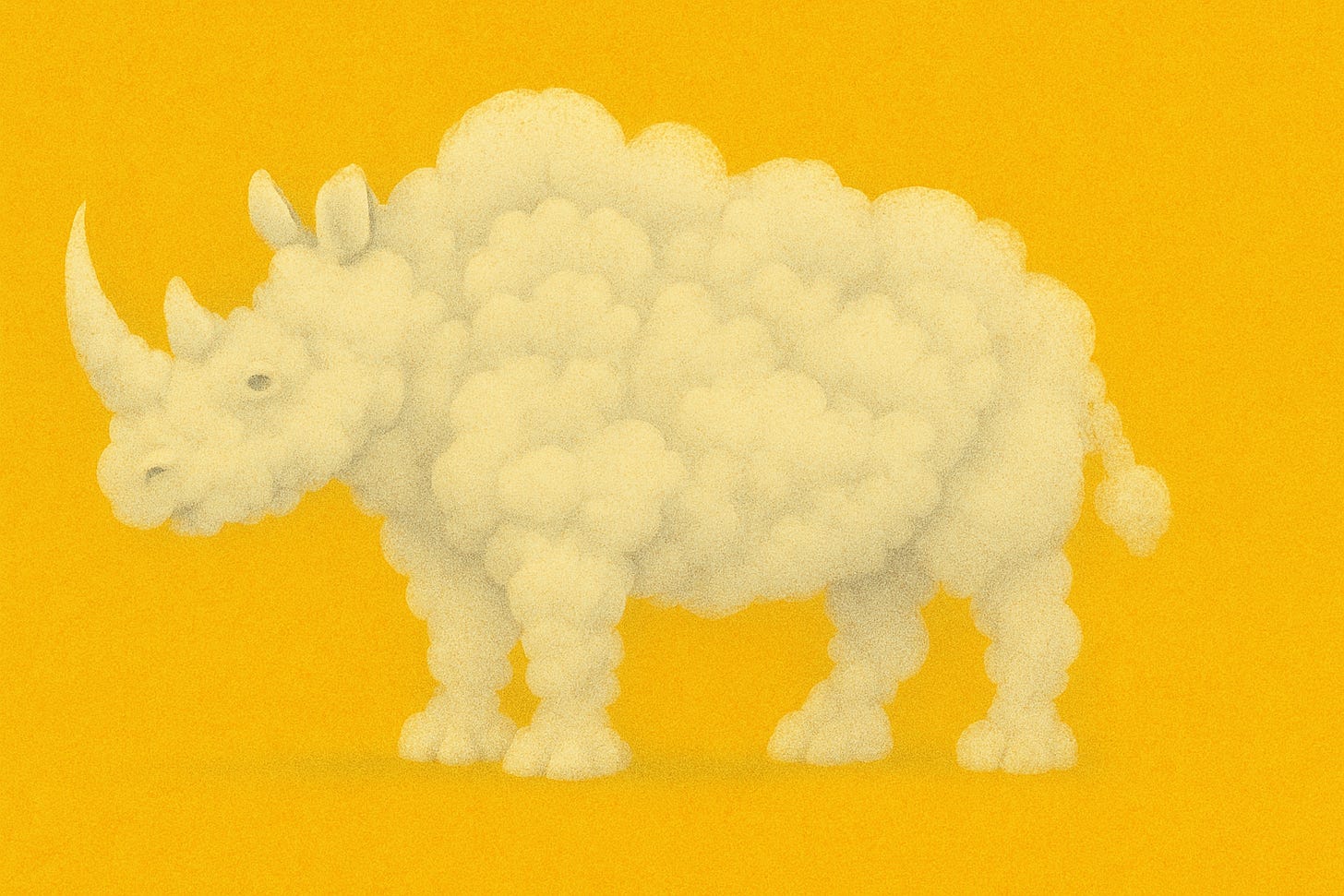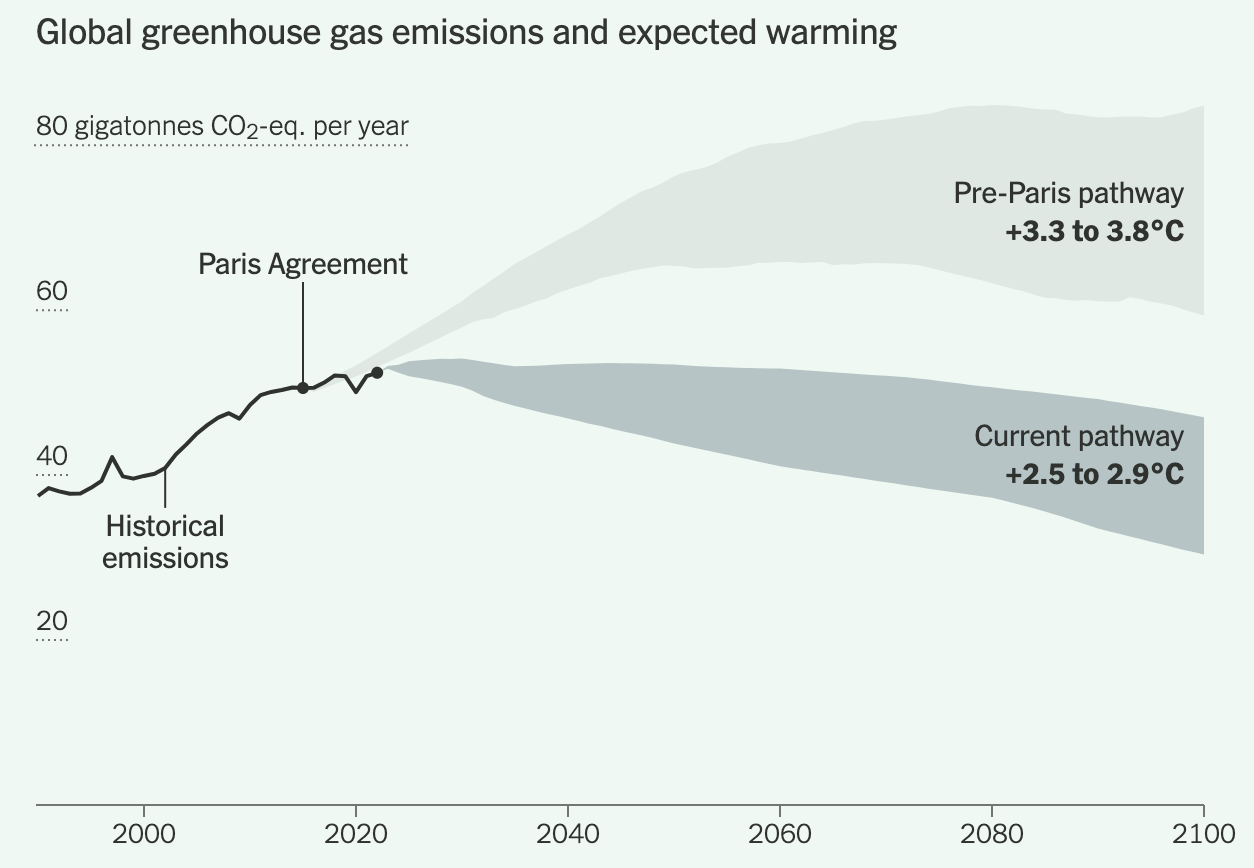🌍 9 facts about the environment I learned this week
Hey folks! Some things are improving, most aren’t. The planet’s warming a bit slower, but Britain’s not ready for the heat, and the rich are burning carbon like frequent-flyer miles can buy a new planet.
Billionaires and multimillionaires — the wealthiest 0.1% of the US population — burn carbon like there’s no tomorrow: 4,000 times more than the world’s poorest. Each releases 2.2 tonnes of CO₂ a day, about the weight of a rhinoceros.
Twelve plant species and five animal species generate 75% of the world’s food supply.
By 2050, droughts in the UK could double, and wildfires could surge. Experts say new buildings should handle up to 4°C of warming.
English swimming spots are in murky waters. In 2024, only 64% were rated excellent, well below the EU’s 85%. And with 8.4% classed as poor, England now leads Europe in the number of polluted bathing sites.
On October 21, Google’s DeepMind AI predicted a 60% chance that Hurricane Melissa would reach Category 5. Two days later, that rose to 80%. The next day, human forecasters finally agreed.
Net-zero measures could prevent 207,000 premature deaths and save $2.2 trillion in air-pollution costs by 2030, according to new modelling.
Solar has led the world’s new power growth for three years in a row.
Cover just 1% of the world’s coastal zones with offshore wind and solar, and you could power about 30% of global electricity demand by 2050.
The Paris Agreement worked, at least a bit. A decade ago, we were heading for 3.8°C of warming. Now, if countries keep their promises, it’s closer to 2.5–2.9°C.
From my mailbox
Sam Matey-Coste: “The United Arab Emirates has begun construction of what will likely be the world’s largest integrated solar plus battery storage project when fully operational in 2027. The project includes 5.2 GW of solar plus a 19 GWh battery system.”
Alexander Verbeek: “Rich nations facing climate disasters should study Bangladesh’s approach. They save more lives from cyclones than America saves from hurricanes. Hurricane Katrina hit New Orleans, and a wealthy American city had no functioning evacuation plan. Bangladesh would have saved those people.”
Zeke Hausfather: “A world of unabated climate change will impact the poor most severely. Addressing it requires prioritising development and poverty alleviation to build adaptive capacity, reducing emissions rapidly in middle- and upper-income countries to mitigate future climate impacts, and driving down the cost of clean energy technologies so they can be more readily adopted by low-income countries. Perhaps I’m unduly optimistic, but I think that society should be able to do both.”
What I’ve been reading
How the UK became one of the poorest countries in Western Europe: “In the past 30 years, the British economy chose finance over industry, Britain’s government chose austerity over investment, and British voters chose a closed and poorer economy over an open and richer one. The predictable results are falling wages and stunningly low productivity growth.”
Too much social media gives AI chatbots ‘brain rot’: “AI chatbots are worse at retrieving accurate information and reasoning when trained on large amounts of low-quality content, particularly if the content is popular on social media.”
The secret language of ships: “Most ships have clues to their identity emblazoned on their stern, often in the same order: owner, name, port (or “flag”), and International Maritime Organization number. The owner, name, and flag may change over a ship’s lifespan, but the IMO number stays the same.”
And that’s it for today! Thanks for reading! If you enjoy the newsletter, share it with a friend. And if you really enjoyed it, consider upgrading to a paid subscription: it helps support my work and means a lot.
Elia Kabanov is a science writer covering the past, present and future of technology (@metkere).
Cover art: Elia Kabanov feat. DALL-E. Infographics: Harry Stevens and Mira Rojanasakul / The New York Times.



